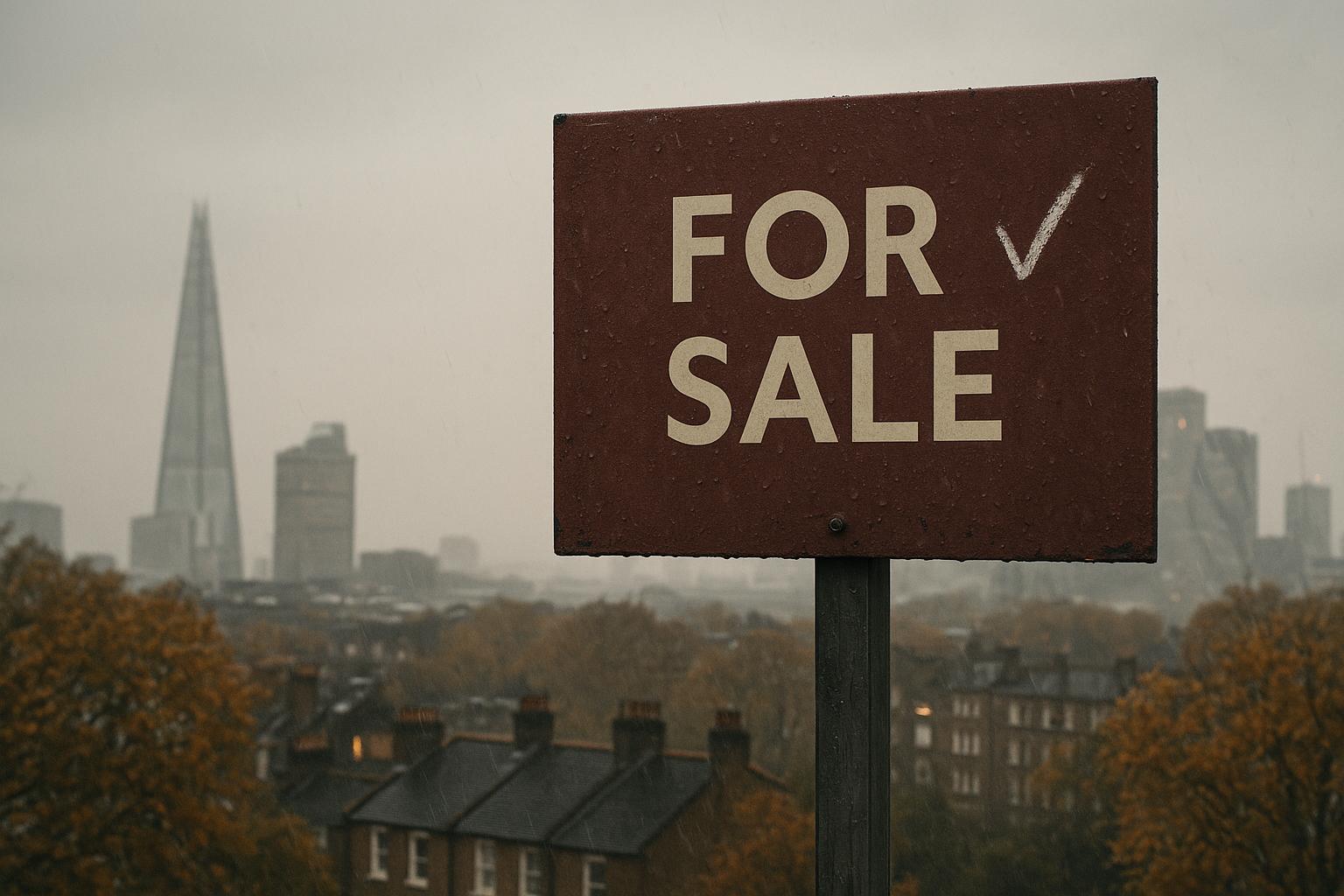House prices in Barnet saw a moderate increase in August 2025, rising by 2.3% compared to the previous month, to an average of £615,503. This growth outpaced the London average, where prices edged up by just 0.1%. However, despite this monthly rise, Barnet’s housing market continues to reflect a longer-term downward trend, with an annual decline of 2.6%, translating to a £16,000 reduction in average value over the past year. Among London's 33 local authorities, Barnet ranked 26th for annual growth, indicating relatively subdued performance compared to areas like Barking and Dagenham, which saw prices jump by 9.1%, and Westminster, where values dropped sharply by 15.1%.
Across the UK, the housing market displayed a more positive picture, with average prices increasing by 3% year-on-year to £273,000 in August. In England specifically, the average price stood at £296,000, a 2.9% rise, although regional disparities were significant. The North East enjoyed the strongest growth at 6.6%, while London as a whole recorded a slight annual decline of 0.3%, underscoring the capital’s ongoing housing challenges. This marked a slowdown from previous months, with a modest 0.9% price increase from July to August in England. Notably, the data reveals regional variations influenced by factors such as affordability and underlying economic conditions.
Experts attribute part of the current market uncertainty to the approaching autumn Budget, which has injected a degree of caution among both buyers and sellers, particularly in higher-value segments. James Evans, chief executive of estate agents Douglas & Gordon, noted that while buyers are returning to the market amid relatively stable interest rates and improving affordability, uncertainty over policy decisions is causing some hesitancy. "We’re not out of the woods yet," he commented, highlighting the cautious stance many are adopting ahead of official announcements.
Similarly, Colleen Babcock from Rightmove emphasised that abundant housing supply this year has curbed price growth compared to the previous year, affording buyers greater choice and negotiating power. She pointed out that pricing realism amongst sellers is increasing given the competition. Babcock also noted regional differences, with prices in the north of England, Wales, and Scotland holding up better due to more affordable price points and less pronounced impacts from recent stamp duty changes, which apply in England and Northern Ireland.
Simon Gerrard, chairman of Martyn Gerrard Estate Agents, observed that the August figures primarily reflect transactions from earlier in the year and do not fully capture a slowdown triggered by budget speculation. He suggested that many prospective buyers and sellers are postponing decisions until greater clarity on forthcoming policy measures is available, reinforcing the prevailing sense of market caution.
Consumer price inflation remained steady at 3.8% in September, according to the Office for National Statistics, maintaining the same level as in July and August. This persistent inflationary pressure adds another layer of complexity for both the housing market and potential homeowners as they navigate affordability and financing in the months ahead.
Overall, while Barnet’s house prices showed some resilience in August relative to the broader London market, underlying uncertainties around fiscal policy and economic conditions continue to weigh on long-term price momentum. Buyers and sellers are adopting a cautious approach in anticipation of the autumn Budget, with regional disparities and market dynamics likely to influence the trajectory of house prices across the UK in the near term.
📌 Reference Map:
- Paragraph 1 – [1] (Barnet Post)
- Paragraph 2 – [2] (UK Government), [3] (UK Government)
- Paragraph 3 – [1] (Barnet Post)
- Paragraph 4 – [1] (Barnet Post)
- Paragraph 5 – [1] (Barnet Post)
- Paragraph 6 – [1] (Barnet Post)
Source: Noah Wire Services
